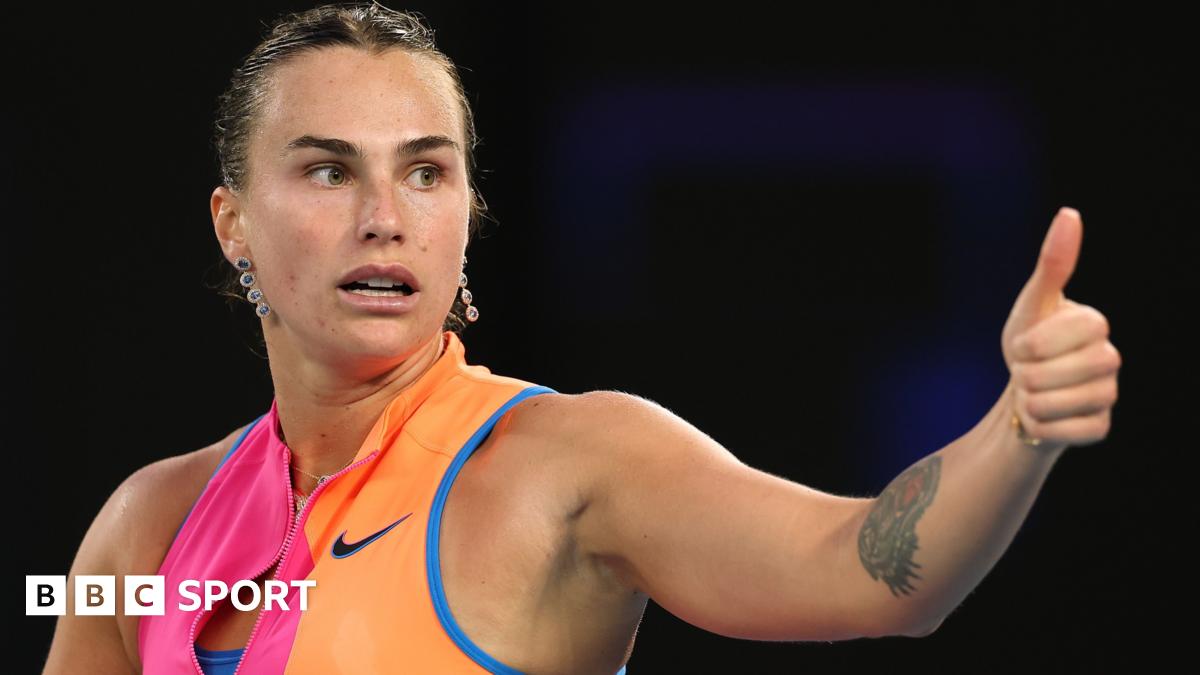Australian Open 2026: Aryna Sabalenka brushes aside Elina Svitolina to reach Melbourne final
Aryna Sabalenka kept her cool to storm past Elina Svitolina and reach a fourth Australian Open final in a row.
World number one Sabalenka overcame fluctuations in form and a hindrance call against her in the fourth game of the match to thrash Svitolina 6-2 6-3.
Ukraine’s 12th seed Svitolina had beaten two top-10 players to reach the semi-finals but was no match for Sabalenka’s powerful hitting.
Sabalenka has yet to drop a set this year and is now on an 11-match winning streak.
She will face either Elena Rybakina or Jessica Pegula on Saturday as she bids for a fifth Grand Slam singles title and a third here.
The 27-year-old will also be searching for some redemption after last year’s final, when she felt she was “not brave enough” in a three-set loss to Madison Keys.
“I cannot believe that,” Sabalenka said of reaching another Melbourne final.
“It is an incredible achievement but the job is not done yet.”
More to follow.
